Divinity: Dragon Commander – E3 Preview
by Mark R
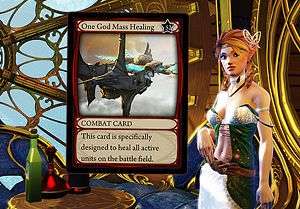 Dragons. Their existence has been questioned by many over the years, with some believing that they once filled our skies but were driven to extinction, while others take the more pragmatic approach and chalk them down to being nothing more than fantasy. Not being one to rain on parades, I won’t mention the lack of empirical evidence and will instead admit that I love the majesty and romance behind the traditional tales of dragons, even though most of them surround the toasting of villages and devouring of virgins. It’s for this reason that, when we were invited to drop by Larian’s booth for a behind-closed-door look at Divinity: Dragon Commander, I was all over it like Billy Mitchell in a shit tie shop.
Dragons. Their existence has been questioned by many over the years, with some believing that they once filled our skies but were driven to extinction, while others take the more pragmatic approach and chalk them down to being nothing more than fantasy. Not being one to rain on parades, I won’t mention the lack of empirical evidence and will instead admit that I love the majesty and romance behind the traditional tales of dragons, even though most of them surround the toasting of villages and devouring of virgins. It’s for this reason that, when we were invited to drop by Larian’s booth for a behind-closed-door look at Divinity: Dragon Commander, I was all over it like Billy Mitchell in a shit tie shop.
The various trailers had suggested that the crux of the gameplay involved controlling a jet-powered dragon as it tore through the sky destroying enemies with fire and additional arsenal, but within mere seconds of taking my seat, I knew that this was going to be so much more than that. The first hint was that the booth walls were, quite literally, covered with concept art of perhaps thirty or more characters as well as a few creatures dotted around, and a game involving nothing more than a flying dragon would certainly not have had this much meticulous detail afforded to characterisation. The next clue was the initial map screen, with areas sporting various coloured borders and the suggestion that there was at least a degree of diplomacy within the gameplay. Already, this had transformed in my mind from being a meeting where I’d get to see something fun that would help while away the hours, to a game which may just be the most surprising revelation of the entire expo.
I wasn’t far wrong. For those of you who may not yet be aware, Larian’s Divinity series is steeped in fantasy lore and has always offered rich and immersive gameplay, although the mainstream gamer has never quite taken them under their wing as they have the other RPG franchises such as the Elders Scrolls or Gothic series. The beauty of Dragon Commander is that it sits astride several genres at once, offering not only the aerial warfare with the jet-powered dragon, but also full real-time strategy for controlling other troops in the gameplay arena, and a political-based RPG with heavy leanings towards diplomatic relations… and, just when you thought it had no more to offer, you discover the card-game element which drives the way you progress through the game. It’s actually pretty staggering when you see just how many different gameplay styles they’ve successfully pulled together to create one seamless experience, with no feeling of anything being shoe-horned in for the sake of gimmickry.
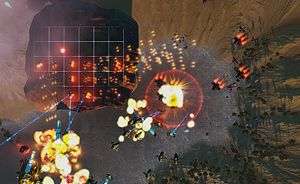 The game itself is set a millennium before the events of Divine Divinity, jumping to the head of the queue in terms of being the earliest-set title within the series, and focuses on the turmoil caused by a new religion following the “One God” which was responsible for the death of the player’s father, resulting in this tale of vengeance and the desire to put right what went wrong. The hub comes in the form of The Raven, an airship where the player can consult advisors and speak with the leaders and ambassadors of other nations in order to forge a way ahead for Rivellon, and this is where the diplomatic gameplay is centred.
The game itself is set a millennium before the events of Divine Divinity, jumping to the head of the queue in terms of being the earliest-set title within the series, and focuses on the turmoil caused by a new religion following the “One God” which was responsible for the death of the player’s father, resulting in this tale of vengeance and the desire to put right what went wrong. The hub comes in the form of The Raven, an airship where the player can consult advisors and speak with the leaders and ambassadors of other nations in order to forge a way ahead for Rivellon, and this is where the diplomatic gameplay is centred.
Every discussion with your advisors or neighbouring ambassadors involves selecting from a choice of responses and, as the conversation reaches a conclusion, you are awarded with a card which will affect your standing within the world. In the level we were shown, the player’s character was married to the beautiful Elf princess Lohanna and so the relationship with the Elven regions was one with a positive influence. When visited by a Dwarven ambassador, however, demanding that you marry their princess in order to make for better relations, circumstances take a dramatic turn with the new race pledging a more solid allegiance with you while the Elves distance themselves from you after their princess was unceremoniously dumped for another woman. While it may improve trade and diplomatic relations with this new race, the impact of such actions need to be carefully considered beforehand as each individual race not only comes with its own benefits, but turning against them has consequences.
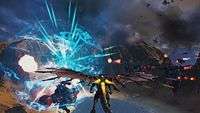 |
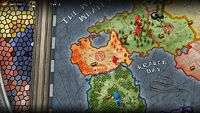 |
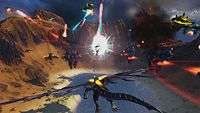 |
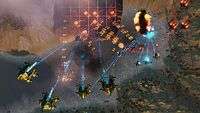 |
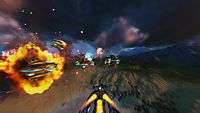 |
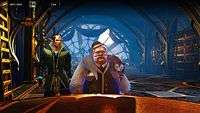 |
We asked whether these decisions are balanced, where the negative impact caused by making a specific choice would be directly proportionate to the positive reaction or whether there would be an element of penalty included, forcing a more tactical decision…
“It is balanced yes, but not always at the same level. They may demand non-rational things from you and if you comply to those, all the other races will take a very heavy hit in their attitude, but if you manage to complete those arcs you’ll have huge benefits from them, plus each of them have a different angle – the imps take a very weapon and technology based angle. They have three different types of things they can do, especially when they blow up the moon – that gives you a very special type of weapon that you can mount on your battleships. The lizard is more politically-oriented and can affect neighbouring countries if you complete their arcs, so each of them has a heavy emphasis on a different type of playing style. I guess the vigilant player will try to complete the arcs one by one because you get a lot of friction and fluctuation concerning their attitudes, but you can also get an exact measure of this as you have advisors on board who can show you the graphs”
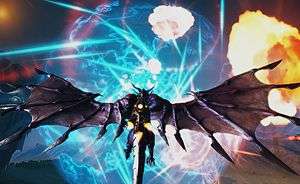 Unlike many recent games who promise that every decision you make will affect the outcome of the game, Dragon Commander’s gameplay does actually alter depending on your choices, so when opting to release prisoners in order to bulk out your army and gain a special ‘reinforcements’ card to provide an advantage during battle, it places your people at risk because the prisoners in question are thieves, rapists and murderers. It’s this particular aspect which guarantees longevity as no two plays-through will be the same, unless you’re not much of a risk-taker and decide on the same choices each time.
Unlike many recent games who promise that every decision you make will affect the outcome of the game, Dragon Commander’s gameplay does actually alter depending on your choices, so when opting to release prisoners in order to bulk out your army and gain a special ‘reinforcements’ card to provide an advantage during battle, it places your people at risk because the prisoners in question are thieves, rapists and murderers. It’s this particular aspect which guarantees longevity as no two plays-through will be the same, unless you’re not much of a risk-taker and decide on the same choices each time.
The battles, both in single and multi-player, are fast-paced and feature a seamless blend of typical RTS-style troop deployment with third-person aerial combat, and the building mechanics appear to be intuitive and user-friendly. While the original trailer showed more of the dragon-flying aspect, as great as it looked, it is the strategic element which will undoubtedly keep the player interested, along with the role-playing aspect and cleverly-integrated card usage.
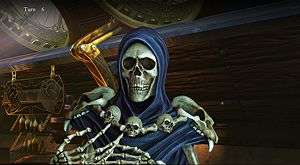 One surprising aspect of Dragon Commander is its adult nature – from gay marriages, euthanasia, abortion, and rape through to the skeletal Undead princess sporting a bra stuffed with melons as she longs to have her shapely body back. It’s certainly not the kind of game to have Halo, Mass Effect or even Sims fans scrambling for the checkout of their local store but for those who crave a little more thought and immersion, with real consequences from moral decisions, Divinity: Dragon Commander is definitely one to watch. Plus, you know, dragons.
One surprising aspect of Dragon Commander is its adult nature – from gay marriages, euthanasia, abortion, and rape through to the skeletal Undead princess sporting a bra stuffed with melons as she longs to have her shapely body back. It’s certainly not the kind of game to have Halo, Mass Effect or even Sims fans scrambling for the checkout of their local store but for those who crave a little more thought and immersion, with real consequences from moral decisions, Divinity: Dragon Commander is definitely one to watch. Plus, you know, dragons.
Last five articles by Mark R
- From Acorns to Fish
- Alone In The Dark
- Why Borderlands is Better Than Borderlands 2
- Falling Short
- The Division: A Guide to Surviving the Dark Zone Solo






















I loved both Ego Draconis and Dragon Knight Saga so it’s great news that there are two new games in the series coming out – Divinity: Dragon Commander and Divinity; Original Sin. I just now have to hope for console versions:(